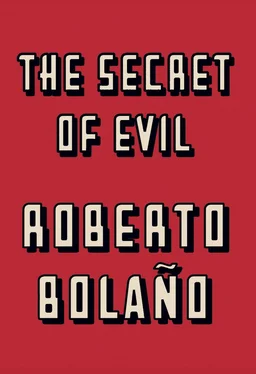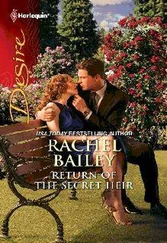So the Central American is outside the frame of the photograph, sharing that pristine and deceptive territory with the object of Guyotat’s gaze: an unknown woman armed only, for the moment, with her beauty. Their eyes will not meet. They will pass each other by like shadows, briefly sharing the same hazardous ambit: the itinerant theater of Paris. The Central American could quite easily become a murderer. Perhaps, back in his country, he will, but not here, where the only blood he could possibly shed is his own. This Pol Pot won’t kill anyone in Paris. And actually, back in Tegucigalpa or San Salvador, he’ll probably end up teaching in a university. As for the unknown woman, she will not be captured by Guyotat’s asbestos nets. She’s at the bar, waiting for the boyfriend she’ll marry before long (him or the next one), and their marriage will be disastrous, though not without its moments of comfort. Literature brushes past these literary creatures and kisses them on the lips, but they don’t even notice.
The section of restaurant or café that contains the photo’s nest of smoke continues imperturbably on its voyage through nothingness. Behind Sollers, for instance, we can make out the fragmentary figures of three men. None of the faces can be seen in its entirety. The man on the left, in profile: a forehead, one eyebrow, the back part of his ear, the top of his head. The man on the right: a little piece of his forehead, his cheekbone, strands of dark hair. The man in the middle, who seems to be calling the tune: most of his forehead, traversed by two clearly visible wrinkles, his eyebrows, the bridge of his nose, and a discreet quiff. Behind them, there is a pane of glass and behind the glass many people walking about curiously among stalls or exhibition stands, bookstands perhaps, mostly facing away from our characters (who have their backs to them in turn), except for a child with a round face and straight bangs, wearing a jacket that may be too small for him, looking sideways toward the café, as if from that distance he could observe everything going on inside, which, on the face of it, seems rather unlikely.
And in a corner, to the right: the waiting man, the listening man. His face appears just above Marc Devade’s blond hair. His hair is dark and abundant, his eyebrows are thick, he is thin. In one hand (a hand resting listlessly against his right temple), he is holding a cigarette. A spiral of smoke is rising from the cigarette toward the ceiling, and the camera has captured it almost as if it were the image of a ghost. Telekinesis. An expert could identify the brand of cigarette that he’s smoking in half a second just by the solid look of that smoke. Gauloises, no doubt. He’s gazing off toward the photo’s right-hand side — that is, he’s pretending not to know that the photo is being taken, but in a way he too is posing.
And there is yet another person: careful examination reveals something protruding from Guyotat’s neck like a cancerous growth, which turns out to be made up of a nose, a withered forehead, the outline of an upper lip, the profile of a man who is looking, with a certain gravity, in the same direction as the smoking man, although their gazes could not be more different.
And then the photo is occluded and all that is left is the smoke of a Gauloise floating in the air, as if the viewfinder had suddenly swung to the right, toward the black hole of chance, and Sollers comes to a sudden halt in the street, a street near the Place Wagram, and feels in his pockets as if he had left his address book behind or lost it, and Marie-Thérèse Réveillé is driving on the Boulevard Malesherbes, near the Place Wagram, and J.-J. Goux is talking on the phone with Marc Devade (J.-J.’s voice is unsteady, Devade isn’t saying a word), and Guyotat and Henric are walking on Rue Saint-André des Arts, heading for Rue Dauphine, and by chance they run into Carla Devade who says hello and joins them, and Julia Kristeva is coming out of class surrounded by a retinue of students, quite a few of whom are foreign (two Spaniards, a Mexican, an Italian, two Germans), and once more the photo dissolves into nothingness.
Aurora borealis. Terrible dawn. As they open their eyes, they are almost transparent. Marc Devade, alone in bed, snug in gray pajamas, dreaming of the Académie Goncourt. J.-J. Goux at his window, watching clouds float through the sky over Paris and comparing them unfavorably to certain clouds in paintings by Pisarro or the clouds in his nightmare. Julia Kristeva is sleeping and her calm face seems an Assyrian mask until, with a very slight wince of discomfort, she wakes. Philippe Sollers is in the kitchen, leaning on the edge of the sink, and blood is dripping from his right index finger. Carla Devade is climbing the stairs to her apartment after having spent the night with Guyotat. Marie-Thérèse Réveillé is making coffee and reading a book.
Jacques Henric is walking through a dark parking garage, which echoes to the sound of his boots on the cement.
A world of forms is unfolding before his eyes, a world of distant noises. The possibility of fear is approaching the way wind approaches a provincial capital. Henric stops, his heart speeds up, he tries to orient himself. Before, he could at least glimpse shadows and silhouettes at the far end of the parking lot; now it seems hermetically black, like the darkness in an empty coffin at the bottom of a crypt. So he decides to keep still. In that stillness, his heartbeat gradually slows and memory brings back images of the day. He remembers Guyotat, whom he secretly admires, openly pursuing little Carla. Once again, he sees them smiling and then he sees them walking away down a street where yellow lights scatter and regroup sporadically, without any obvious pattern, although Henric knows deep down that everything is determined in some way, everything is causally linked to something else, and human nature leaves very little room for the truly gratuitous. He touches his crotch. He is startled by this movement, the first he has made for some time. He has an erection and yet he doesn’t feel sexually aroused in any way.
THE VAGARIES OF THE LITERATURE OF DOOM
It’s odd that it was bourgeois writers who transported José Hernández’s Martín Fierro to the center of the Argentine canon. The point is debatable, of course, but the truth is that Fierro, the gaucho, paradigm of the dispossessed, of the brave man (but also of the thug), presides over a canon, the Argentine canon, that only keeps getting stranger. As a poem, Martín Fierro is nothing out of this world. As a novel, however, it’s alive, full of meanings to explore, which means that the wind still gusts (or blasts) through it, it still smells of the out-of-doors, it still cheerfully accepts the blows of fate. Nevertheless, it’s a novel of freedom and squalor, not of good breeding and manners. It’s a novel about bravery rather than intelligence, let alone morality.
If Martín Fierro dominates Argentine literature and its place is in the center of the canon, the work of Borges, probably the greatest writer born in Latin America, is only a footnote.
It’s odd that Borges wrote so much and so well about Martín Fierro . Not just the young Borges, who can be nationalistic at times, if only on the page, but also the adult Borges, who is occasionally thrown into ecstasies (strange ecstasies, as if he were contemplating the gestures of the Sphinx) by the four most memorable scenes in Hernández’s work, and who sometimes even writes perfect, listless stories with plots imitative of Hernández’s. When Borges recalls Hernández, it’s not with the affection and admiration with which he refers to Güiraldes, or with the surprise and resignation evoked by Evaristo Carriego, that familiar bogeyman. With Hernández, or with Martín Fierro , Borges seems to be acting, acting to perfection, in fact, but in a play that strikes him from the beginning as not so much odious as wrongheaded. And yet, odious or wrongheaded, it also seems to him inevitable. In this sense, his silent death in Geneva is highly eloquent. More than eloquent. In fact, his death in Geneva talks a blue streak.
Читать дальше












